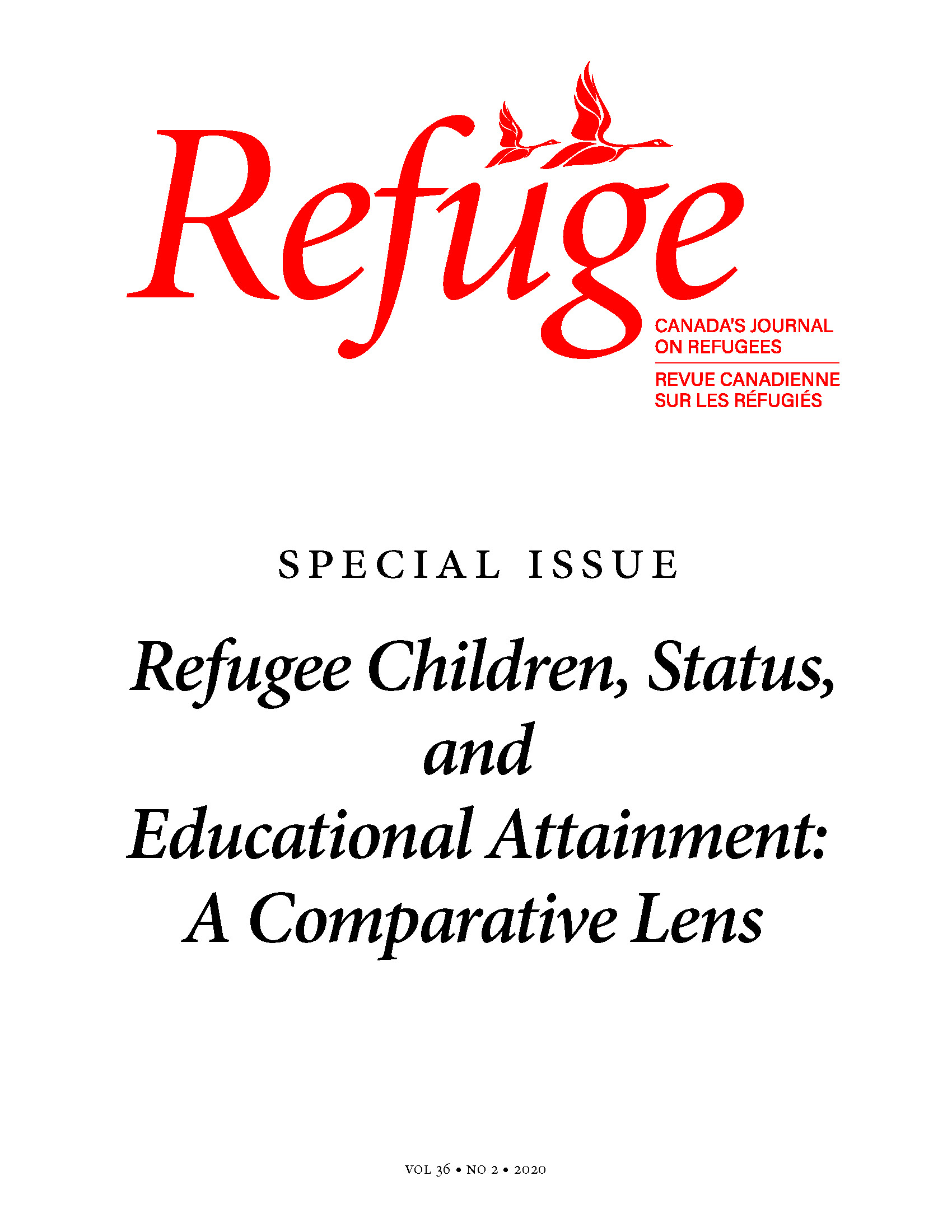What Shapes the Integration Trajectory of Refugee Students? A Comparative Policy Analysis in Two German States
DOI:
https://doi.org/10.25071/1920-7336.40719Keywords:
Germany, refugee students, educational policy, educational integration, human rightsAbstract
Enabling the successful integration of refugee students into the German schooling system poses a crucial challenge for the coming years. Drawing from the human rights framework of the Inter-agency Network for Education in Emergencies standards, we applied a rights-based approach to policy analysis on educational provisions for refugee students from 2012 to 2018. According to international and European law, Germany is obliged to grant similar access to education for nationals as well as refugee children and youth. In reality, the realization of educational rights varies from state to state. This will be highlighted and discussed in this article, using the example of two very different German states, Hamburg and Saxony. The sudden rise of numbers of refugees led only slowly to an increase in educational policy density and intensity on federal state and national levels in 2016 and 2017. We find that the differences in compulsory schooling, models of integration into schooling, and the asylum and settlement policies in both states shape the educational participation of refugee children and youths. Both states implemented parallel integration models that might bear risks of stigmatization and limit educational possibilities. However, transition and language support concepts in both contexts contain integrative phases offering language supports in the regular classrooms. Asylum policies and state-specific settlement policies have profound implications for the rights and access to education. Further, vocational education and training programs play a crucial role, especially in Saxony, to tackle demographic challenges.
****Note that the original pdf version of this article contained a small production error that has now been corrected.***
Metrics
Downloads
Published
How to Cite
Issue
Section
License
Copyright (c) 2020 Annette Korntheuer, Ann-Christin Damm

This work is licensed under a Creative Commons Attribution-NonCommercial 4.0 International License.
Refuge authors retain the copyright over their work, and license it to the general public under the Creative Commons Attribution-Non Commercial License International (CC BY-NC 4.0). This license allows for non-commercial use, reproduction and adaption of the material in any medium or format, with proper attribution. For general information on Creative Commons licences, visit the Creative Commons site. For the CC BY-NC 4.0 license, review the human readable summary.







